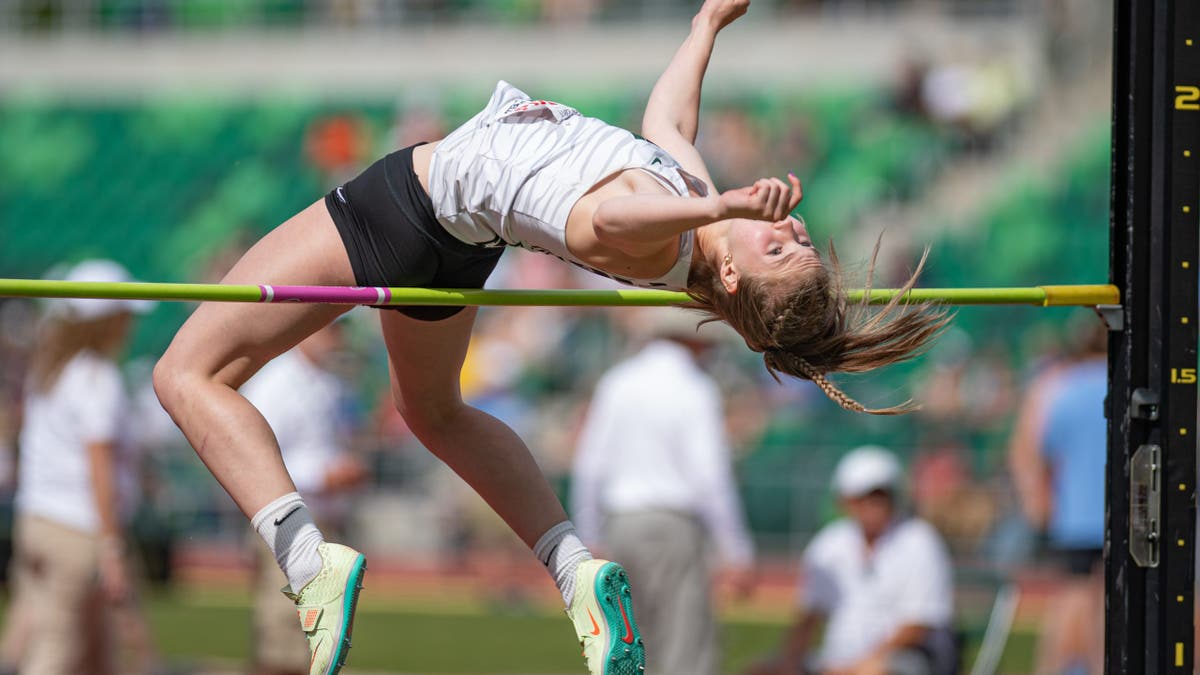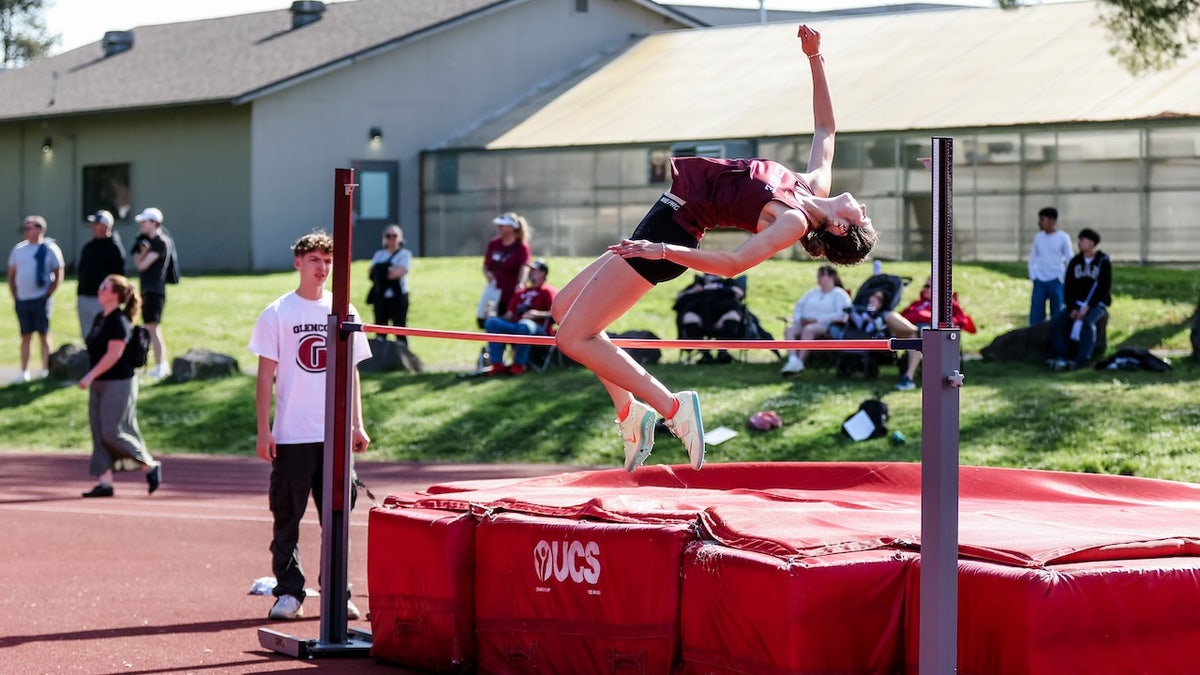Oregon high school senior Alexa Anderson, a track and field star from Tigard High School, has become a conservative figure after refusing to stand on the podium next to a transgender athlete at the state championship. Despite coming from a Democratic family, Anderson stood firm in her protest, joined by fellow medalist Reese Eckard.
Anderson described the reaction at the event as tense and intimidating. “There was confusion, anger, and many people didn’t understand why we did it. Everyone was looking at us,” she said. She recalled hearing shouts demanding they move out of the way and facing backlash both on and off the field. Despite receiving hateful comments, Anderson said she was prepared and supported by many.

Oregon girls’ track and field athlete Alexa Anderson in action. (Courtesy of Alexa Anderson)
Warned by friends, coaches, and family about the potential fallout, Anderson considered withdrawing from the competition altogether but chose to compete and express her opposition through the podium act.
Before this, Anderson had never competed against a transgender athlete but felt compelled to take a stand for other girls impacted by trans inclusion in sports.
Another Oregon athlete, Glencoe High School junior Lilian Hammond, shared a similar experience. Unaware at first, Hammond competed against and shared a locker room with a biological male athlete who identifies as female. The realization came late in the season, leaving her feeling betrayed and violated, especially by the coaches and adults who allowed it without informing the team. Hammond described the experience as traumatic.

Oregon girls swimmer Lilian Hammond. (Courtesy of Lilian Hammond)
Other athletes like Forest Grove High School senior Maddie Eischen and Newberg High School junior Sophia Carpenter also faced the prospect of competing against transgender athletes and chose to withdraw from meets. Eischen described her decision to scratch from a competition as traumatic, while Carpenter was emotionally overwhelmed, even crying after the event.

Oregon girls’ track and field athlete Maddie Eischen. (Courtesy of Maddie Eischen)
Carpenter later made a visible statement by wearing activist apparel during the state championships.
All three athletes expressed that their opposition is directed not at transgender individuals but at the state’s laws and school policies allowing biological males to compete in girls’ sports. They also said this issue will influence their future political decisions.
Hammond noted the contrast in recent elections between candidates supporting transgender inclusion in women’s sports and those opposing it, saying she will consider these stances going forward. Carpenter emphasized that women’s rights under Title IX and constitutional principles should be upheld.
The controversy in Oregon, home to the famous “TrackTown USA,” has gained national attention. Legal action has already begun, with the America First Policy Institute filing a federal civil rights complaint alleging violations of Title IX and the First Amendment.
Leigh Ann O’Neill, a senior legal attorney at AFPI, said, “When young women are told to compete against male athletes or are punished for speaking out, we have to act. No one is above the Constitution—not even state sports officials.”